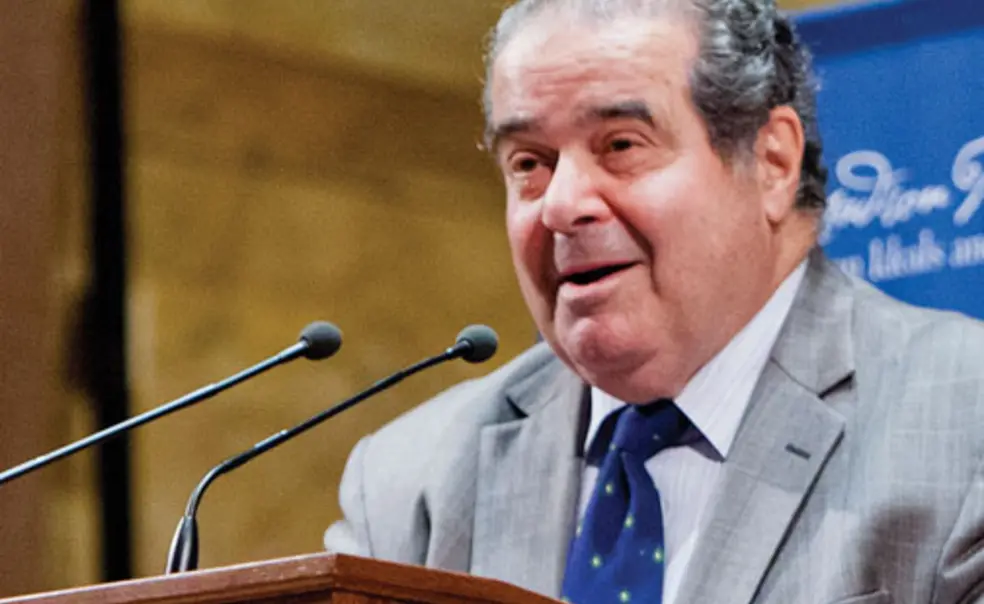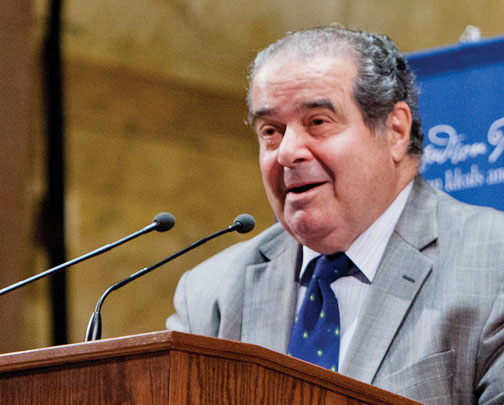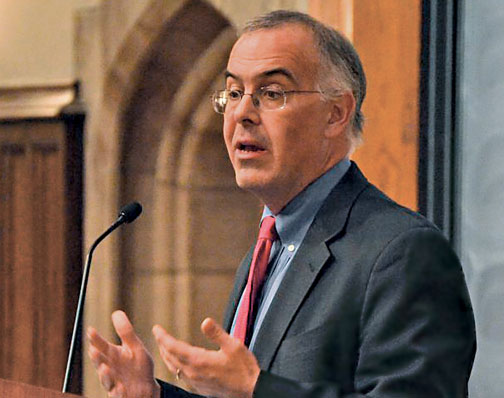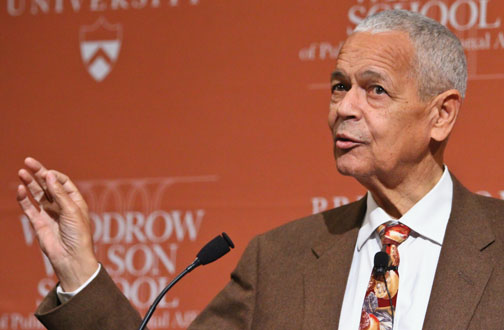Campus lectures: Quotable quotes
“The ‘living Constitution’ judge is a happy fellow — he comes home and his wife says, ‘Dear, did you have a good time?’ ‘Oh, you know,’ he says, ‘We had a constitutional case today, and the Constitution meant exactly what I thought it ought to mean!’”
— Supreme Court Associate Justice Antonin Scalia, who said during his Dec. 10 lecture in Richardson Auditorium that he preferred an “enduring Constitution” over a “living Constitution.” During the Q&A period, Duncan Hosie ’16, who identified himself as gay, asked Scalia if it had been necessary to mention murder, polygamy, cruelty to animals, and bestiality in his dissents in cases regarding gay rights. “I don’t think it’s necessary, but I think it’s effective,” Scalia said. “I don’t apologize for the things I raised. I’m not comparing homosexuality to murder. I’m comparing the principle that a society may not adopt moral sanctions, moral views, against certain conduct.” The exchange drew national media attention.
“There has been a rise in self-esteem, self-confidence, and a tremendous rise in desire for fame. ... We have suffered a loss in public virtue. I think we’re less willing to self-restrain, less willing to compromise, much more likely to be caught up with information cocoons.”
— New York Times columnist David Brooks in a Nov. 26 talk in McCosh 50. Eleven years ago, Brooks wrote a widely circulated article in The Atlantic, “The Organization Kid,” which described a focus among elite college students on careerism to the detriment of character development. “My conclusion about that ethos has only deepened with time,” he said at Princeton.
“Those who say that race is history have it exactly backward. History is race. ... America is race. ... We are still a country at war with itself. But we are not the same country. We have gone from Civil War to civil rights.”
— Julian Bond, civil-rights activist, politician, and writer, in a Nov. 20 talk at the Woodrow Wilson School. Bond, who helped to found the Student Nonviolent Coordinating Committee and chaired the NAACP, said the victories of the civil-rights movement were extraordinary, but added that “the task ahead is enormous, equal to if not greater than the job already done.”















No responses yet